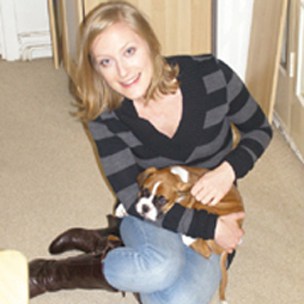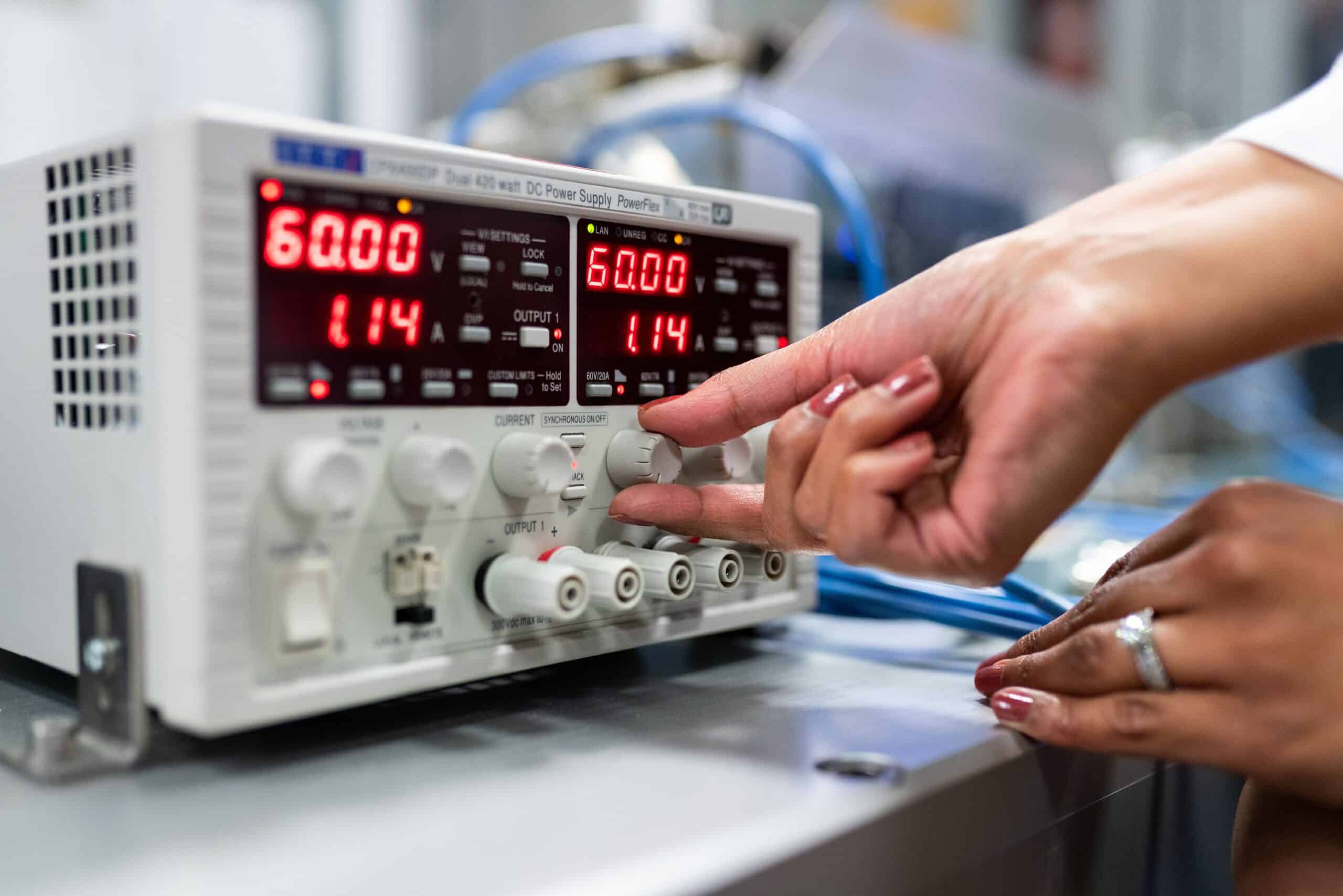“When I finished my degree I really felt the world was my Oyster, as they say – it was great!”
A- Levels: Maths, Geography, English Literature
Georgie Mellor is an operational research consultant working for British Airways at Heathrow. Her important work affects many different areas of the company.
What did you want to do as a career when you were younger?
I think a careers advisor convinced me that I wanted to be an accountant because I was good at maths – but actually I wanted to be pilot.
What did you enjoy about mathematics at school?
There was always a black and white answer and figuring it out was very satisfying. I also liked the fact that homework was just working through exercises, and once you’d done that and mastered the “method”, homework was finished and I could go and enjoy myself! I enjoyed many subjects at school, but with things like English and Geography, there was always more reading you could do and always more time you could spend perfecting essays and coursework – I didn’t like that!
What is your background in mathematics?
I studied Maths, Geography and English Literature A- Levels. I then went to Southampton University to read a BSc in Maths, followed by an MSc in Operational Research. I then continued to study in order to obtain a PhD in Operational Research.
What was your motivation in studying mathematics at university level?
I wanted to do a “worthy” degree that would impress employers, and guarantee me plenty of opportunity when the time came to choose a career. I knew that having a strong Maths degree would separate me from other applicants and open many doors to me. When I finished my degree I really felt the world was my Oyster, as they say – it was great!
Can you tell me about your job history?
I decided to study an MSc in Operational Research because I enjoyed learning about mathematical techniques that help solve real-world problems and improve real-world processes. My MSc dissertation involved working with the WHO in Geneva, modelling the link between TB and HIV in Kenya and using this to predict HIV prevalence in areas where data was not available. I really enjoyed using Maths in this way and felt very passionate about being able to use Maths to help address healthcare issues. I therefore continued to work alongside the WHO, Health Protection Agency and the London School of Hygiene and Tropical Medicine during my PhD, and modelled the efficacy of different TB interventions in HIV prevalent populations. I absolutely loved this work, and at the end of my PhD there were many opportunities all over the world available to me, but after over 3 years of working with this group, I was fast becoming an epidemiologist (which was no bad thing – what an interesting career!) but I wanted to get a broader experience of using maths in the real-world. I therefore accepted a job at British Airways. The group of Operational Researchers here use maths to help optimise almost everything at BA, from deciding which planes to buy, where to fly, what to charge customers, how to minimise queuing through the terminals, choosing a boarding strategy and ensuring flights can leave on time – maths is used to help improve the whole process and much more. This makes the work very varied and you can be involved in some very high profile decisions.
What qualifications were required for your current job?
I needed to have an MSc in Operational Research
What skills do you use in your job?
We use optimisation (e.g. to improve ground staff rosters), linear programming (e.g. to make optimal fleet purchase and configuration decisions), simulation (e.g. to model the flow of passengers through the terminal to make decisions about manpower and equipment) and forecasting (e.g. passenger cancellations). Personally, I use a lot of problem structuring and complex data analysis.
How do you think your Mathematics background helps you in the day to day aspects of your job?
My ability to think about things logically really helps when dealing with clients that have vague and complex problems. I am able to break it down into a set of clear issues and objectives and then set about addressing each of them. Having a good analytical ability also enables me to identify what information is needed and draw this out from large amounts of data.
.
Were you aware of the range of mathematics careers available when you were applying for jobs?
Yes, but then you never stop hearing of more (by seeing such things as these career profiles etc).
Which resources did you use when you were job hunting?
Doing the MSc in OR at Southampton, you find that employers come to you. I didn’t really have to look around too much. A couple of the companies even came to Southampton University to do the interviews – so it was all very easy!
Were there are any resources which you found particularly limited or particularly useful?
There is an OR careers fair in Birmingham and Southampton every year – this was a great opportunity to speak to all the companies looking specifically for “me” (those with my qualifications and interests) and get an idea of the range of careers available to me. It’s a brilliant opportunity to get to know a company (ask all the questions you wouldn’t like to ask in a more formal interview situation), and if you are interested to find out how and when to apply.
Did you find that there was a lot of competition at application / interview level?
There was a reasonable amount. However, I believe that by the time my MSc year graduated, all my colleagues had found good jobs.
Has your perception of Mathematics changed in moving from an education atmosphere to the world of work?
No, I think my PhD prepared me well for the work world.
What are some of your hobbies in your spare time?
I love to cycle and be outdoors – anything that involves being active. I recently ran the London marathon, which was a great challenge. I also love having friends around for dinner and playing with my two new and very mischievous kittens, they can keep me entertained for hours!






